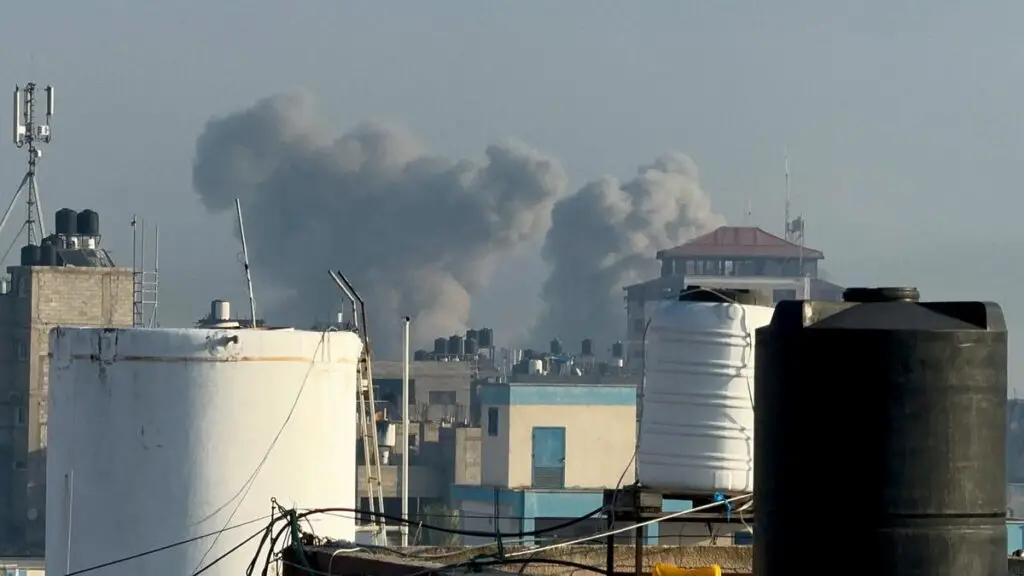Israel’s relentless strikes on the besieged Gaza Strip continued on December 17 despite mounting international pressure for a ceasefire and desperate pleas from the families of remaining hostages. The ongoing conflict has devastated much of the Palestinian territory and sparked global concern as it enters its third month, marked as the bloodiest Gaza war to date.
The Hamas-run Gaza Strip’s health ministry reported that 24 Palestinians were killed in a morning Israeli bombardment in Jabalia camp, with many more still missing under the rubble. Additionally, at least 12 people died in strikes on the central city of Deir al-Balah, and witnesses reported bombardment of Bani Suhaila east of Khan Yunis, Gaza’s second city.
Israeli Prime Minister Benjamin Netanyahu reiterated his commitment to continuing the fight until the end, aiming to eliminate Hamas, free all hostages, and prevent Gaza from becoming a center for terrorism again. Meanwhile, foreign envoys, including French Foreign Minister Catherine Colonna, have been calling for an immediate and lasting ceasefire due to the high civilian toll. However, others, such as British and German counterparts David Cameron and Annalena Baerbock, voiced support for a ceasefire only if it is sustainable, emphasizing the need for Hamas to lay down its arms.
The conflict unfolded when Hamas militants breached Gaza’s high-security border fence and carried out a deadly attack on Israel on October 7, killing over 1,140 people, primarily civilians, and abducting 250 others. Israel retaliated with sustained aerial bombardment and a ground invasion, resulting in the deaths of 18,800 people, according to Hamas, the majority of whom were women and children.
The UN has reported that approximately 1.9 million Gazans have been displaced by the war, with concerns of a “breakdown of civil order” and a humanitarian disaster. The organization has also highlighted the severe shortage of water and food, with hospitals struggling to accommodate injured patients and displaced individuals seeking shelter within their facilities.
The escalating conflict has not been limited to Gaza, as violence has also surged in the occupied West Bank, resulting in the deaths of over 290 Palestinians. Furthermore, regional tensions have increased, leading to fears of a broader Middle East conflict, with Israel exchanging fire with Iran-backed Hezbollah across its northern border with Lebanon and Yemen’s Iran-backed Huthi rebels launching attacks on Israel and passing vessels in the Red Sea.
Amidst this complex situation, there have been efforts to secure a truce, with reports of talks involving a mediator from Qatar. However, Hamas has expressed opposition to negotiations for the exchange of prisoners until the aggression against their people ceases completely. The international community has been making diplomatic efforts to renew humanitarian pauses and stabilize the region, with US Defense Secretary Lloyd Austin’s planned visit to Israel, Bahrain, and Qatar to reinforce commitments to regional security and stability.
The ongoing conflict between Israel and Hamas, and its broader regional implications, represents a critical and urgent issue that continues to demand close attention and international intervention.
Source link

